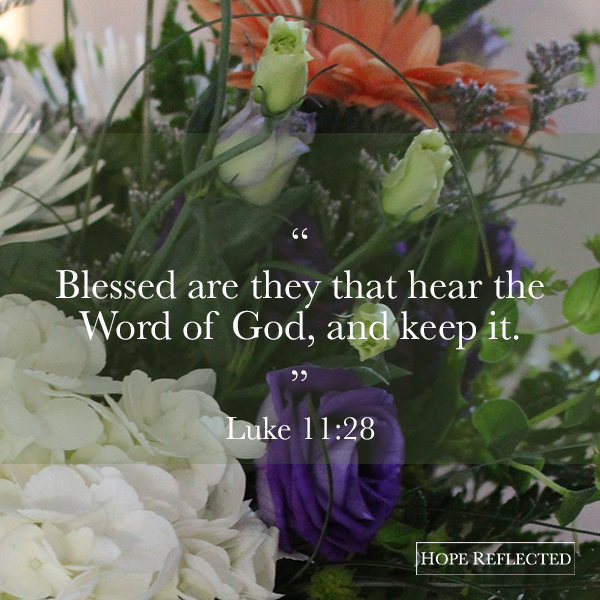Hope Reflected | The Importance of Being Prepared
Written by H, Posted in Christian Living, Published Work
The Importance of Being Prepared
An old adage says, “A Saturday well spent brings a week of content.” There is so much truth packed into this little saying, as what you do over your weekend has a lot to do with how your week rolls out. Taking time before the week begins – to prepare meals, study work notes, finish home work, and get ready for any meetings – to prepare for each day can make a huge difference in both your confidence level and also achieving the goals you set!
Benjamin Franklin was famously quoted, “By failing to prepare, you are preparing to fail.” If you don’t spend time getting yourself ready for the week ahead, or preparing yourself for tomorrow, you’re essentially missing the most crucial step towards success.
The Bible talks a lot about the importance of being prepared. While it’s not always easy, here are just a few things that the Bible says about being prepared:
- Don’t put off until tomorrow what you can do today. “Say not unto thy neighbour, Go, and come again, and to morrow I will give; when thou hast it by thee.” Proverbs 3:28 Don’t put off until tomorrow what you can do today. Procrastination can quickly become a bad habit; choose to practice diligence and make preparedness a good habit. Being prepared is something that we practice daily to bring it into effect.
- Trust God, and do your best. “He who observes the wind will not sow, and he who regards the clouds will not reap.” Ecclesiastes 11:4 In Barnes’ Notes on the Bible, he says, “Unforseen events come from God; and the man who is always gazing on the uncertain future will neither begin nor complete any useful work: but do thou bear in mind that times and circumstances, the powers of nature and the results to which they minister, are in the hand of God; and be both diligent and trustful.” Just because you don’t know what’s around the corner is no excuse for not being prepared and doing your best. The key is trusting God, Who is in complete control of our future.
- Learn from the wisdom of others. “Go to the ant, you sluggard! Consider her ways and be wise, which, having no captain, overseer or ruler, provides her supplies in the summer, and gathers her food in the harvest.” Proverbs 6:6-8 Take a cue from successful people. Most successful men and women aren’t ‘fly by night’; they’re prepared, they’re thoughtful, they set goals and they achieve them. Even ants are prepared! Learn from the wisdom of others.
To be prepared, don’t procrastinate! Give thought to what you need to do, write down and set goals for yourself, and then create a plan to achieve and succeed. Don’t postpone things, do your best, and learn from the experience of others. Remember, sometimes the best way to get things done is simply to begin. Being prepared pays off in the long run!
















![False friends or counterfeit kindness; whatever you want to call it, the world is filled with people who will say one thing to your face and then another behind your back; people who will woo you in order to get something from you.
It’s sad, but it’s true.
The Bible provides us with examples from Joab to Judas, and yet, we’re surprised when we find ourselves deceived and hurt by someone else.
So what are some of the hallmarks of a true friend?
You can read more about this on hopereflected.com [Link in profile]
.
.
.
#friends #friendship #kindness #counterfeitkindness #hurt #proverbs #truefriends #hopereflected #blog #blogpost](https://www.hopereflected.com/wp-content/plugins/instagram-feed/img/placeholder.png)